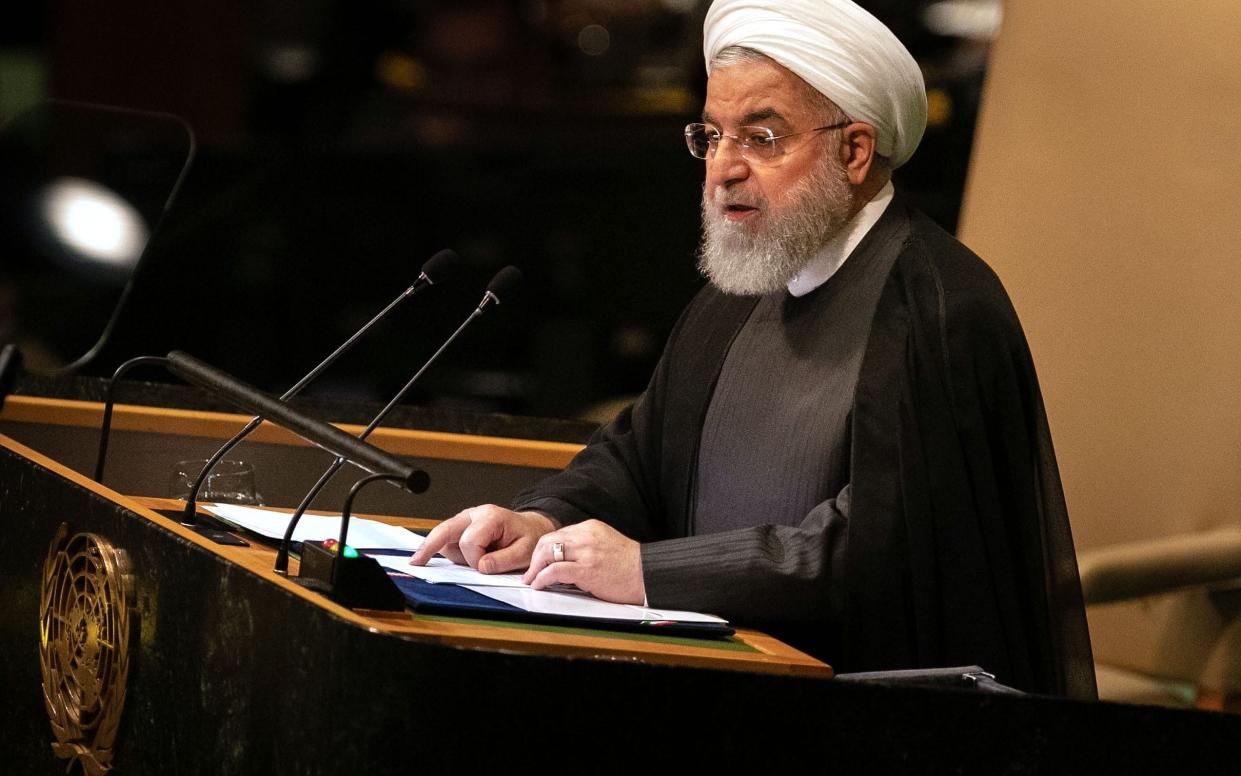Rouhani calls for unity to face 'unprecedented' US pressure

Iranian president Hassan Rouhani has warned of a wave of coming economic hardships worse than in the 1980s as “unprecedented” pressure from international sanctions brings the country to its knees.
"During the war we did not have a problem with our banks, oil sales or imports and exports, and there were only sanctions on arms purchases," Mr Rouhani said.
"But I do not despair and have great hope for the future and believe that we can move past these difficult conditions provided that we are united," he said.
The leader’s comments, made to activists in Tehran, come as US-Iran relations, frosty since President Donald Trump pulled out the nuclear deal a year ago, hit a new low.
Last week, the US deployed forces including an aircraft carrier and B-52 bombers to counter what it says is a rising threat from Iran to US forces there.
The presence of USS Abraham Lincoln, replacing a carrier rotated out last month, has been seen as a clear provocation by Iran’s security establishment.
"An aircraft carrier that has at least 40 to 50 planes on it and 6,000 forces gathered within it was a serious threat for us in the past but now... the threats have switched to opportunities," said Amirali Hajizadeh, head of the Iranian Guards' aerospace division.
"If (the Americans) make a move we will hit them in the head,” he said. In a parliament session on Sunday, the commander of the Guards accused the US of starting a “psychological war” in the region.
The regional sabre-rattling is picking up pace, with an Israeli cabinet minister on Sunday warning that Israel may be in the line of Iranian fire if the standoff escalates. “Things are heating up,” Energy Minister Yuval Steinitz said of the Gulf. "If there's some sort of conflagration between Iran and the United States, between Iran and its neighbours, I'm not ruling out that they will activate Hezbollah and Islamic Jihad from Gaza, or even that they will try to fire missiles from Iran at the State of Israel," he told Israel's Ynet TV.
Both Hezbollah and Islamic Jihad are Iranian-sponsored militant groups active on Israel’s borders. Back in Tehran, Mr Rouhani’s warning of hard times to come appears designed to rally support for his embattled government, which has been criticised by hardliners since Mr Trump pulled out of the nuclear deal a year ago.
Despite the increasingly loud voices of hawkish members of his administration including national security advisor John Bolton, who led the military expansion into the Gulf, Mr Trump, at least, appears open to discussion. "What I'd like to see with Iran, I'd like to see them call me," he said.

